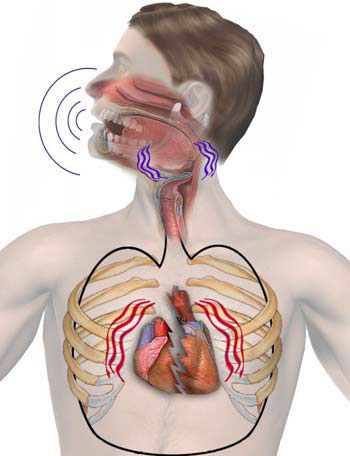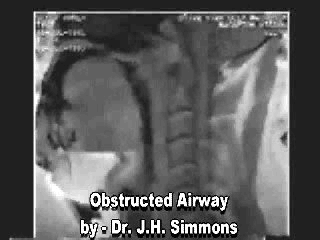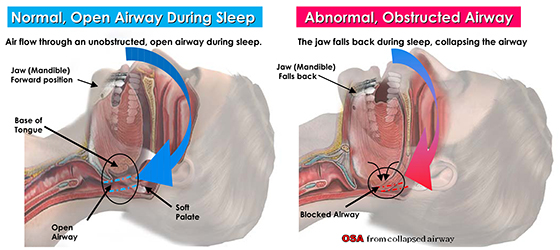
About Sleep Apnea:
Don't let Snoring Break Your Heart!

SNORING Threatens Health:
Snoring typically occurs when the tongue and throat muscles relax during sleep causing the airway space in the back of the throat to narrow. Breathing through a narrow airway causes a vacuum that pulls on the throat's soft tissue causing it to vibrate, which creates the snoring sound. This vacuum in the throat also spreads to the chest where the heart is located, causing a strain on the heart and the possibility for oxygen in the bloodstream to drop to dangerously low levels. When these factors occur night after night, year after year, they instigate the problems listed above. Additionally, new studies have also shown OSA causes increased insulin resistance resulting in poorly controlled diabetes.
For years people have thought of snoring as nothing more than a simple annoyance during the night: snoring is so common that we do not view it as a medical problem. Recent statistics suggest that this seemingly simple noise problem may in fact increase the risk of high blood pressure, stroke, heart attack, and daytime sleepiness.
Studies have demonstrated that in many people, snoring can cause an increase in chest pressures which can influence blood flow in the heart and lungs. This may be the cause of some of the medical problems in people who snore.
Many people who snore have another problem known as sleep apnea.
Apnea is a Greek word, which means, "want to breathe." People with obstructive sleep apnea have pauses in their breathing while asleep. These pauses in breathing occur when the airway collapses during sleep. After a few seconds the person briefly awakens, frequently producing a grunting, gasping, or snorting sound.
Obstructive sleep apnea is more common in obese people and more common in men, but it is not just obesity that can cause this problem. People with a small jaw, large tongue, or large tonsils are at higher risk of having this problem as well. In fact, any condition which can narrow the opening in the back of the throat or possibly the nasal passages can increase the risk of obstructive sleep apnea.
It is important to know the consequences of this problem if left untreated. Some of the more common problems associated with obstructive sleep apnea are excessive daytime sleepiness and an increased risk of high blood pressure, heart attacks and stroke.
Setting the Platinum Standard in Sleep Disorders Medicine.™





